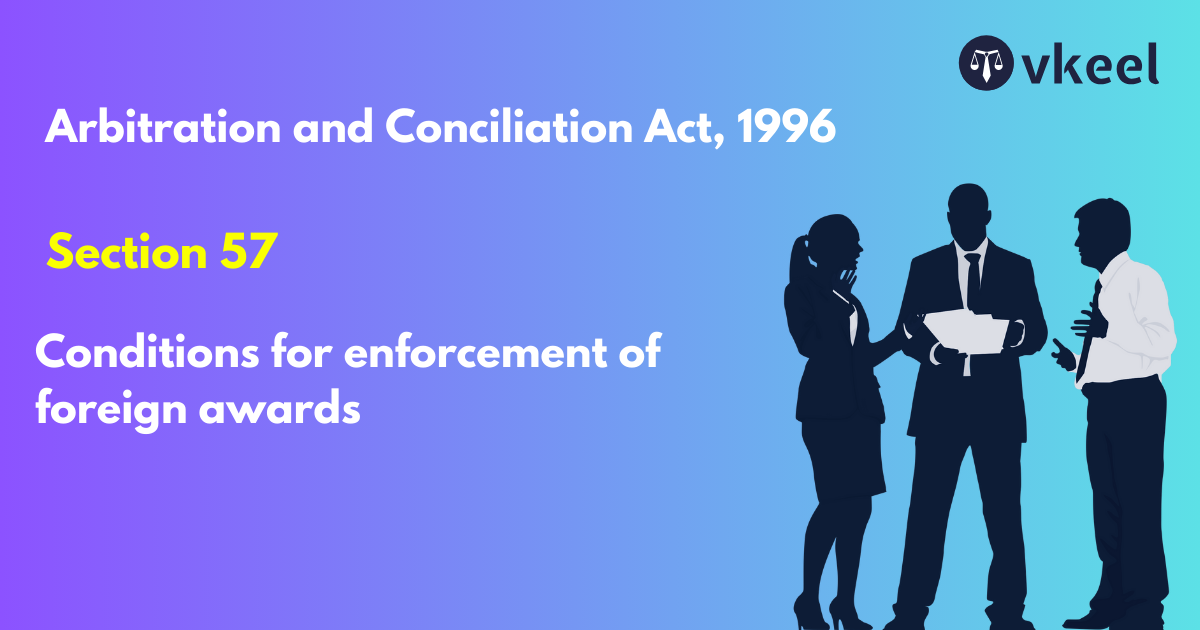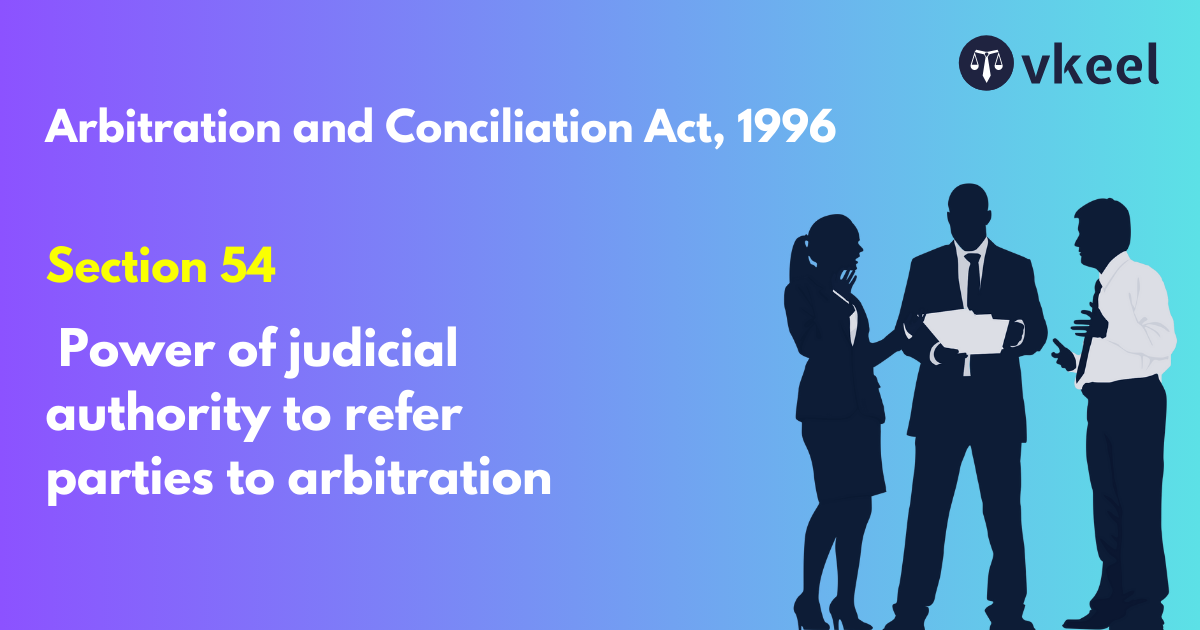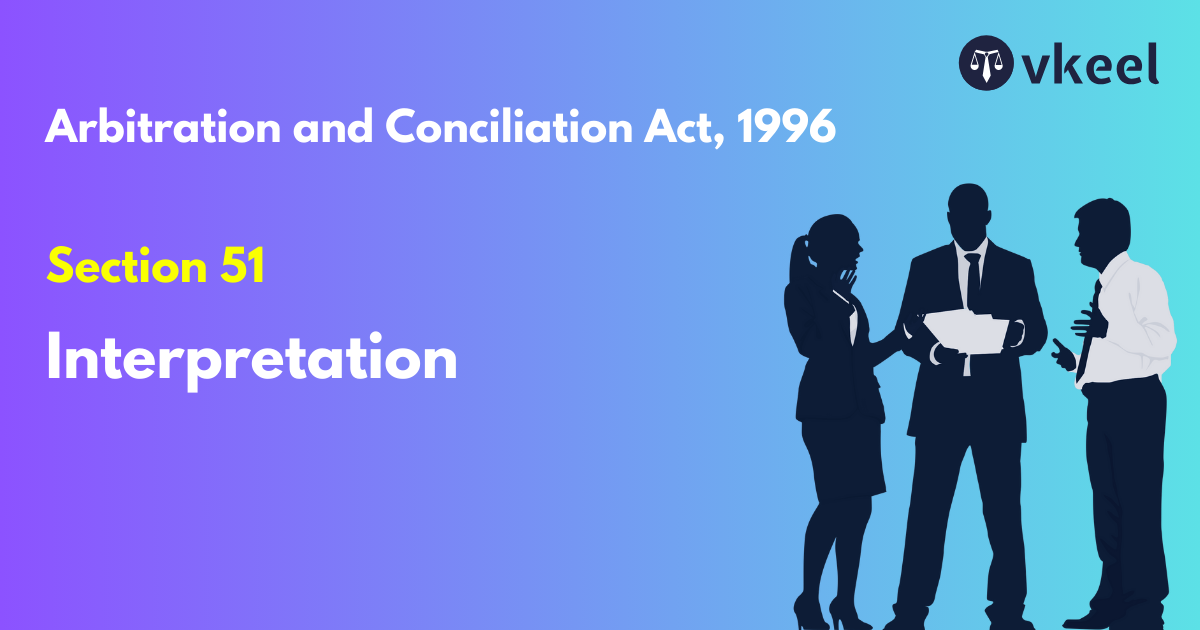Section 44: Arbitration and Conciliation Act, 1996
By Nivedita Dhiman
Table of Contents
Introduction of Section 44
Section 44 of the arbitration and conciliation act states that unless the context otherwise requires ‘foreign award’ means an arbitral award on differences between persons arising out of legal relationship, whether contractual or not, considered as commercial under the law in force in India. By the use of the expression ‘an agreement referred to in section 44’ and ‘ the said agreement’ makes it clear that it refers to only one agreement as referred to in section 44.
Interpretation of Commercial
The expression commercial should be interpretated broadly having regard to the manifold activities which are integral part of international trade today. The expression commercial has to be borne in mind that the act is calculated and designed to subserve the cause of facilitating international trade and promoting the same by providing for speedy settlement of disputes arising in such trade through arbitration and any expression or phrase occurring therein should receive, consistent with its literal and grammatical sense.
Commerce undoubtedly is traffic, but it is something more; it is intercourse. It describes the commercial intercourse between nations and parts of nations, in all its branches, and is regulated by prescribing rules for carrying on that intercourse.
Section 44 of arbitration and conciliation act
Definition
In this Chapter, unless the context otherwise requires, “foreign award” means an arbitral award on differences between persons arising out of legal relationships, whether contractual or not, considered as commercial under the law in force in India, made on or after the 11th day of October, 1960—
(a) in pursuance of an agreement in writing for arbitration to which the Convention set forth in the First Schedule applies, and
(b) in one of such territories as the Central Government, being satisfied that reciprocal provisions have been made may, by notification in the Official Gazette, declare to be territories to which the said Convention applies.
Landmark Judgements of Section 44
UOI vs Reliance India Ltd, 2013
In cases where there is an express provision excluding the applicability of Pt 1 of the Act, then it would become a case of express exclusion. However, where there is a choice of foreign law which has been made by the parties which is totally unconnected to the applicability of Indian law, it becomes a case of implied exclusion if the parties themselves choose their respective foreign law under the choice of law provision in the agreement and departure is permissible by applying the Indian law.
Gas Authority of India Ltd vs SPIE CAPAG, 1994
The New York convention provides a common yardstick on the touchstone of which these agreements and awards are recognised and enforced in the countries which have acceded to the same. Thus, generating confidence in the parties, who may be unfamiliar with the diverse laws prevailing countries with which they are trading, that the arbitral agreements and awards flowing therefrom will be respected and enforced by the courts of the States where the enforcement is sought, provided the conditions laid down in article I and II are satisfied for such enforcement.
Reliance Industries Ltd vs UOI, 2014
The principle of separability permit the parties to agree that law of one country would govern to the substantive contract and laws of another country would apply to the arbitration agreements. The parties can also agree that even the conduct of the reference would be governed by the law of another country. This would be rare, as it would lead to extremely complex problems. It is with this objective in mind that the businessmen would not intend absurd results.
Conclusion of section 44
The above-mentioned section of arbitration and conciliation act allows Indian courts to provide interim measures of protection before or during the arbitration proceedings. It is related to commercial transaction that has a nexus with India. In the commercial contract involving a foreign element, the parties to the arbitration agreement have the choice so far as it relates to the kinds of legal systems, they intended to be subjected to.
Disclaimer:
The information provided in the article is for general informational purposes only, and is not intended to constitute legal advice or to be relied upon as a substitute for legal advice. Furthermore, any information contained in the article is not guaranteed to be current, complete or accurate. If you require legal advice or representation, you should contact an attorney or law firm directly. We are not responsible for any damages resulting from any reliance on the content of this website.












